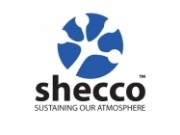Held on 28 June, ATMOsphere Bangkok 2013 provided an overview of global trends for moving towards natural refrigerant solutions. The main conclusions of the UNIDO ATMOsphere Technology Summit, as well as global natural refrigerant market trends were both outlined in presentations by UNIDO and shecco. AHT, the supplier of HC-based cabinets, stressed the cost benefits of using hydrocarbons, while the Green Cooling Association highlighted the effect of the Australian HFC levy on the uptake of natural refrigerants.
UNIDO ATMOsphere main outcomes and next steps
Mr. Sidi Menad Si Ahmed from the United Nations Industrial Development Organization (UNIDO) summarised the key outcomes of the UNIDO ATMOsphere Technology Summit, which was held in June 2013. One of the main conclusions of the conference was that natural refrigerants have the potential to become a mainstream option worldwide and that several factors act as a driving force in encouraging their use. Such factors include direct and indirect environmental impact, efficiency and reliability, as well as training, know-how and safety considerations. While high-ambient temperatures represent a challenge for the refrigeration and air-conditioning sectors, UNEP and UNIDO are currently implementing a demonstration project with the participation of Bahrain, Kuwait, Qatar, Oman, Saudi Arabia and the United Arab Emirates, to assess the effectiveness of 4 low-GWP alternatives in high ambient climate.
Article continues: http://www.hydrocarbons21.com/articles/atmosphere_bangkok_2013_potential_of_natural_refrigerants_to_become_mainstream_globally
